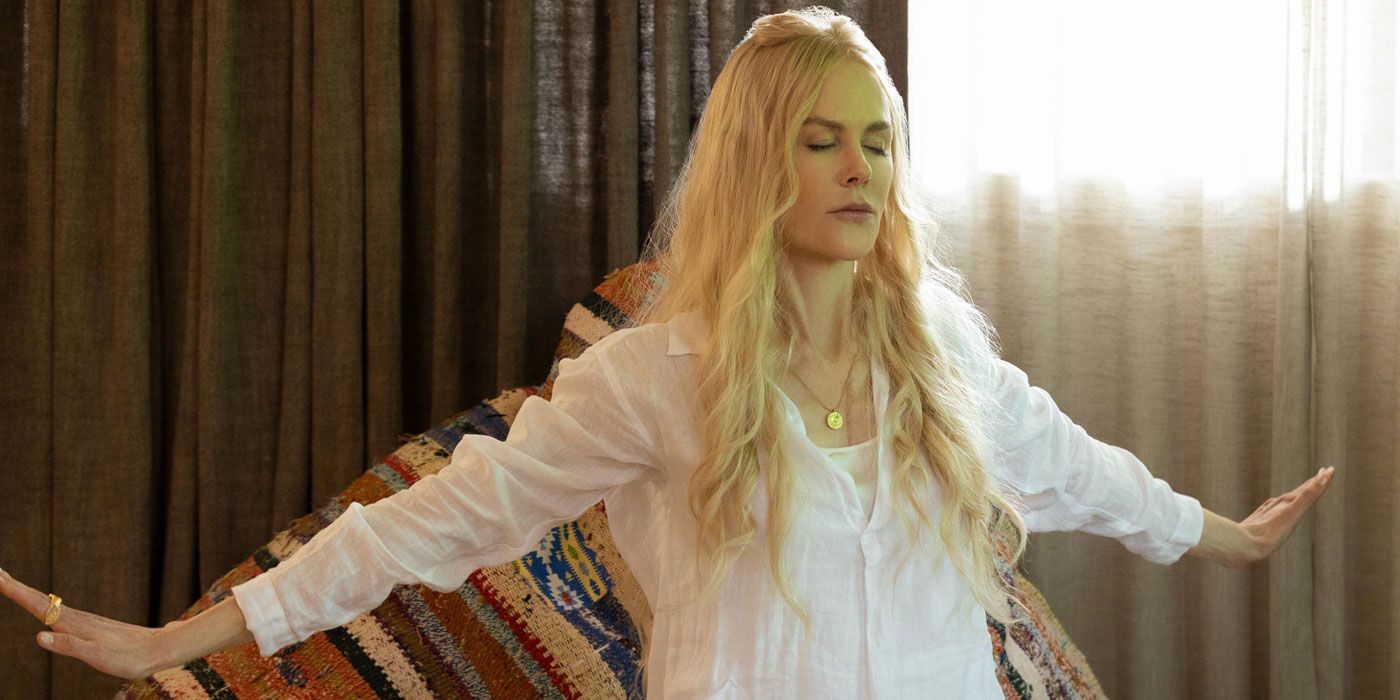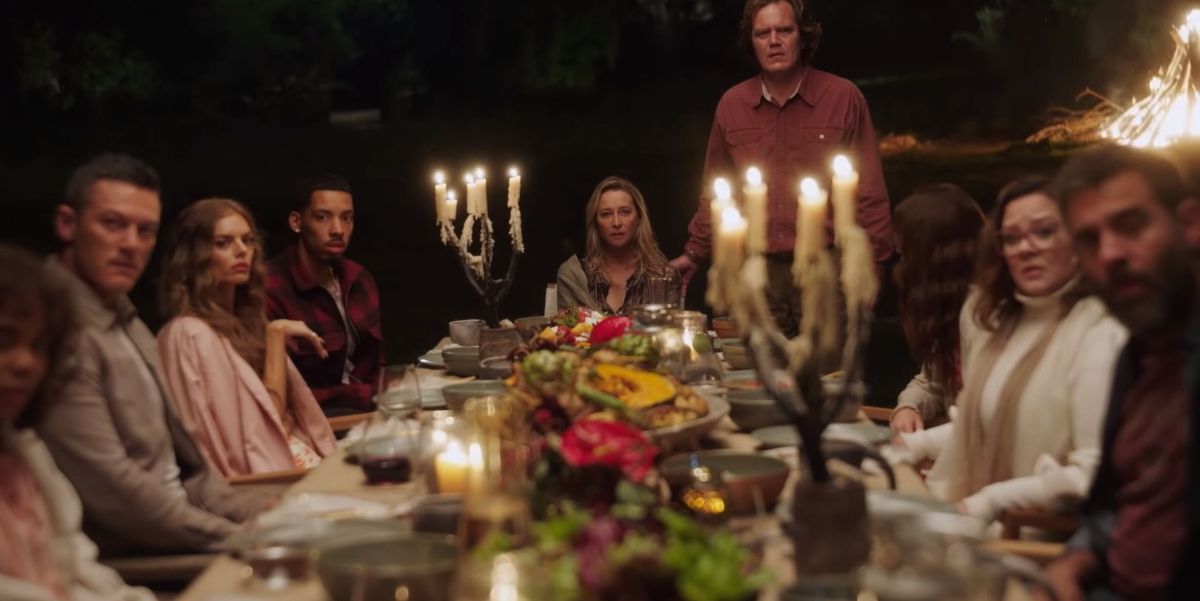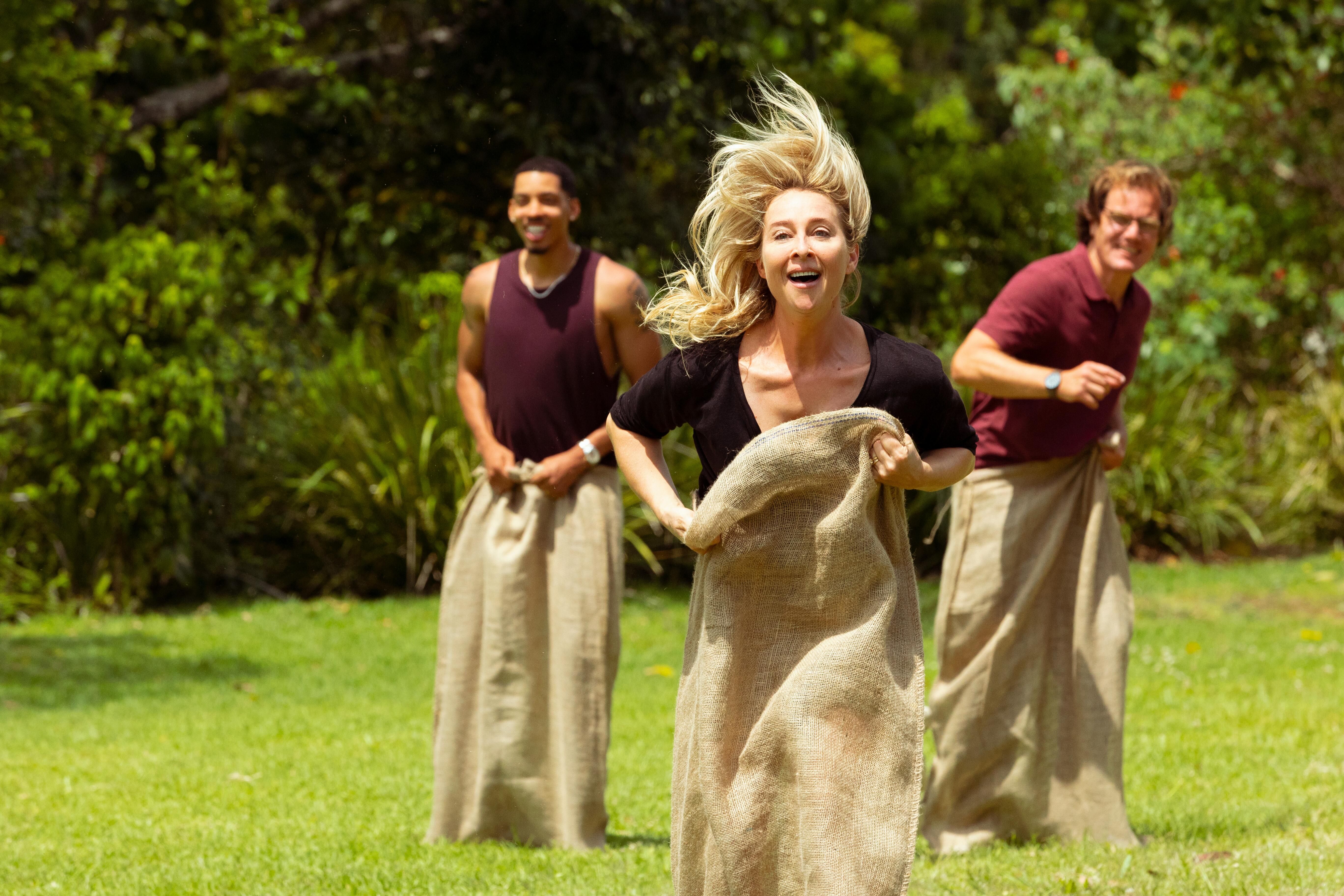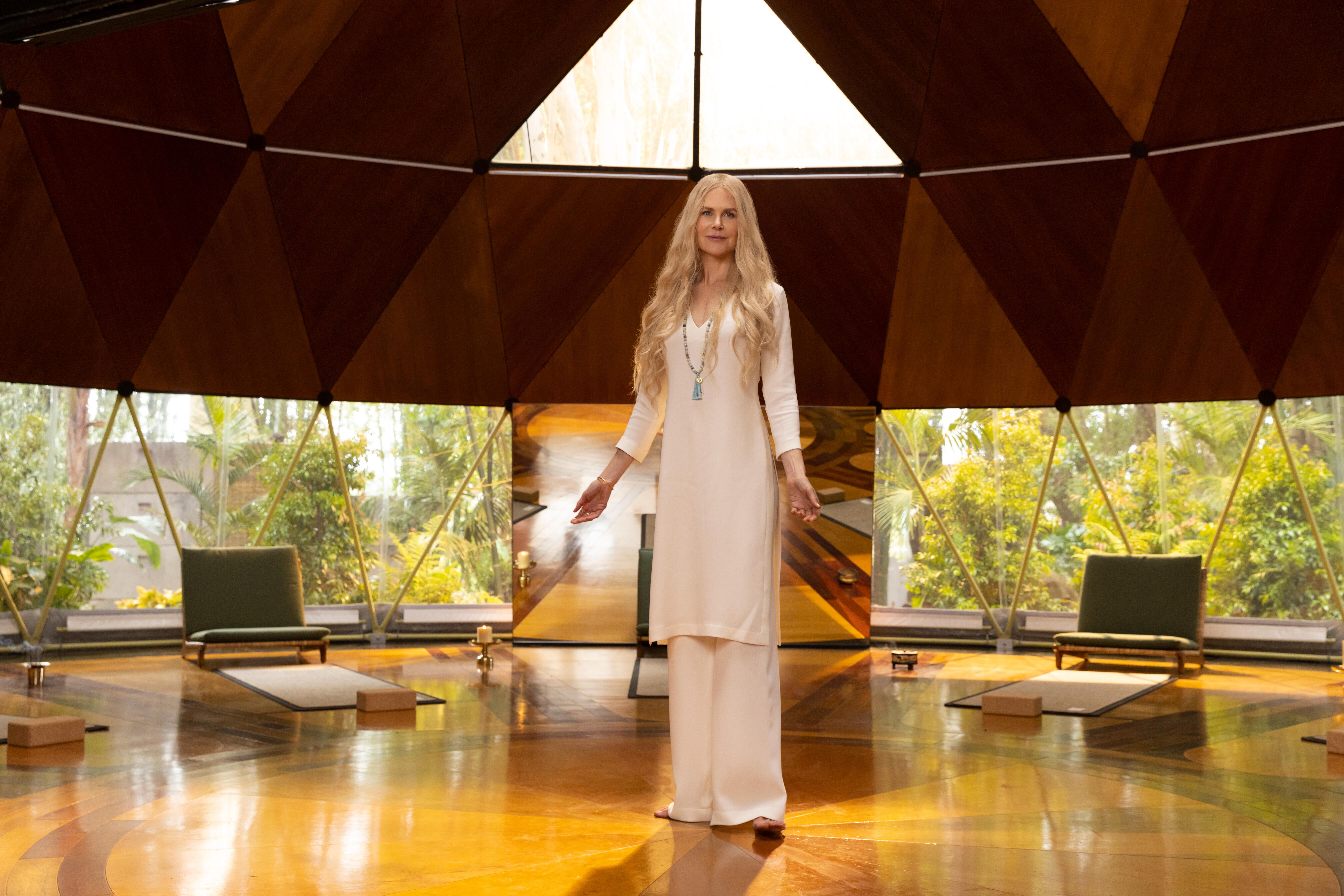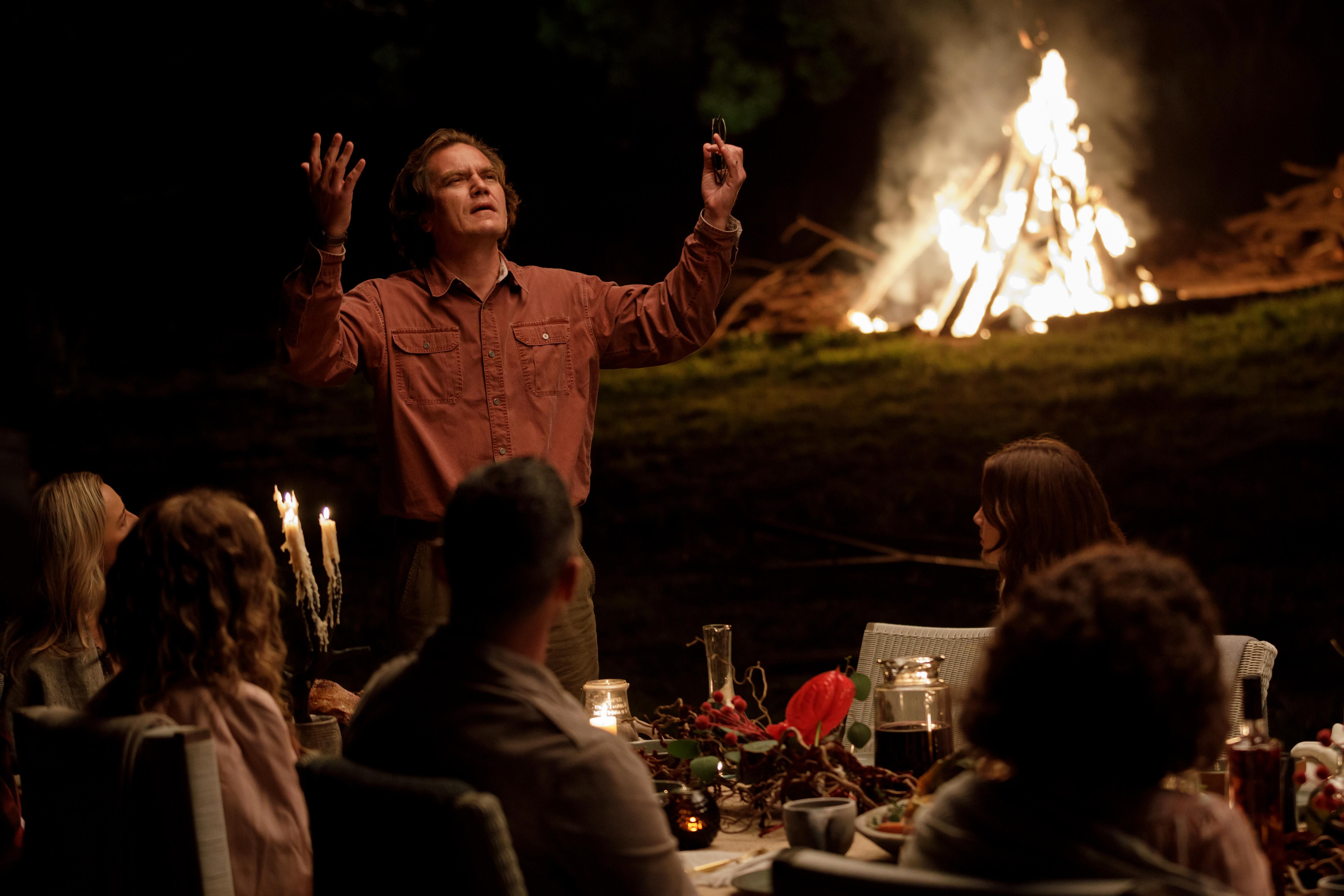When Jonathan Levine was brought onto Nine Perfect Strangers to direct every episode of the Hulu original series, the challenge was clear: Wrangling a large cast during a pandemic to play the titular perfect strangers, plus the staff of Tranquillum House which would guide their life-changing experiences at the wellness retreat. All that, plus a complicated tone as established by the scripts based on the book by Liane Moriarty and adapted by David E. Kelley and John Henry Butterworth, which fluctuates between humor and horror with great frequency.
In a one-on-one interview with Collider, Levine explained how he approached making the series, including the films he looked to for inspiration when it came to navigating its very tricky tone, as well as what it was like working with the stacked ensemble, including Nicole Kidman, Melissa McCarthy, Luke Evans, Melvin Gregg, Samara Weaving, Michael Shannon, Asher Keddie, Grace Van Patten, Manny Jacinto, Tiffany Boone, Regina Hall, and Bobby Cannavale. He also reveals a bit about what it's like to potentially direct a Marvel project — something he's open to doing, but under specific conditions — but first, let's get into a matter inspired by the vast number of smoothies consumed over the course of the show.
Collider: I want to start off by asking this — how much fruit died for this series?
JONATHAN LEVINE: Oh my gosh. I don't know. I think we were being very conscious of not wasting food. I'm certain we were. But yes, there were a lot of smoothies made. A lot of sipping smoothies.
So talk to me about how you came initially on board for this?
LEVINE: It was, I think, Bruna Papandrea, one of the producers, was someone I worked with on Warm Bodies actually, and we were talking and she told me she had this great project and she told me about David and she told me about Nicole and about all the wonderful talent associated with it, and I was just so excited, and then I read the script and I just completely fell in love with the characters and the tone, and so then I kind of went about trying to do it. I went and met with Nicole and I met with Melissa and we were off to the races.
You say you read the script, so I'm guessing you didn't read the book first?
LEVINE: No, I didn't read the book first. I did read the book shortly thereafter. And I loved the book as well.
The reason I ask is that back in December, I interviewed Tiffany Boone because she was in another film and she had just gotten back from filming Nine Perfect Strangers. So we talked a little bit about that, and one thing she mentioned was that you asked her not to read the book, because the character she was playing was so different.
LEVINE: Yeah. I definitely was like, the actors can read the book if they so choose, but I think that I really wanted them to be treating the show as its own specific thing. And Delilah especially was a little different than the character in the book. So, yeah. I think that basically I did want all the actors to be going off the script rather than the book, because I felt like there was a chance people could kind of get confused, and some of the characters did change from the book to the scripts.
No, it makes sense because I mean, I read the book probably a year or two ago, but even just watching the show, the book is so distinctive that memories of what was in the book were coming back pretty quickly.
LEVINE: Right. Right. Totally. And then you would get confused if you were acting in it.
In terms of approaching the cast, some people were already on board when you came on. Casting-wise, what were you looking for in terms of the people that you ended up bringing in, after you joined the project?
LEVINE: I was looking for a few things. I think all of us were. First of all, we were looking for people with both dramatic chops and comedic chops, because that's certainly a big part of what we're doing. Looking for just people you really empathize with, people you felt for, people who you could see doing bad things or unlikable things, but you would still kind of be able to access that humanity. I think that's one of the very special things about it is, all of these characters, no matter how flawed they are, we love them, we root for them, and I think that that's a testament to the amazing cast we have.
Of course. I feel like this is a statement that can apply to a lot of the actors in the show, but off the top of my head, just working with someone like Melissa McCarthy or working with someone like Manny Jacinto, who have really strongly defined comedy personas from other roles, were you looking for specific ways to make sure that they were playing something unique to the show?
LEVINE: Well, that's really interesting. I think I certainly did not want people to be reminded of their comedic personas, if that makes sense. Honestly, they're so good that it didn't really come up very often. I think that the rhythm of what we're doing is so... it can be funny and light sometimes, and I think that both Manny and Melissa have moments to shine comedically as well, but I think that finding that rhythm and finding that tone and making sure that people aren't thinking about anything else other than these very specific characters was really important to me. I think that you certainly get takes with different levels of grounded-ness, and if something seems like it's too broad or reaching for a joke, you try to dial it back.
But I never have that problem with comedic actors or actors who are known for comedic stuff. I think that as long as everyone understands the tonal agenda, I find that people who are known for comedic stuff actually are quite adept at dialing things back or finding different rhythms, and I think that frequently it's fun for them.
It all speaks to a general question about tone, because looking at your previous work, you've definitely done very strong comedy, but you've also done more less explicitly comedic films. For doing this, what were you using as touchstones or guideposts?
LEVINE: I mean, what I loved about it was it had this kind of incredible mashup of different tones. And so I would call references from different tonal columns...I would rip off like 10 different things, and then it would become this whole unique thing, because at your core is these amazing characters and this beautiful story. So I mean, there was no specific comparison for overarching tone. I looked at a lot of '70s art thrillers, like Picnic at Hanging Rock, and Don't Look Now, and stuff like that. I watched Midsommar a lot. I liked kind of thinking about Polanski stuff too, which is sort of funny and absurdist, but also creepy. Gosh, let me think. Hold on. I have a whole list of my references. Let me pull them up...
Polanski's a fascinating reference, just because there's that one shot in Rosemary's Baby at the very end with those people creeping behind Mia Farrow in the frame — it's simultaneously one of the funniest and scariest things I've ever seen.
LEVINE: Yeah. I mean, I just kind of loved that and I was reading a book about Polanski at the time, actually Bobby Cannavale lent it to me, about the making of Chinatown... There were so many different things that I watched for it. Okay. I watched Parasite, the Lars von Trier movie Melancholia, 3 Women, Get Out, The Lobster, and knowing that even if just like four percent of those things get into the material, it still kind of informs and elevates things in an interesting way for me. More than anything though, I would just kind of use the characters and the script as the tonal guidelines, but these things kind of subconsciously get into what you're doing and improve them, I think.
That list reflects an interesting aspect of the show — I was talking to a colleague who was working her way through the screeners, and I think she was on episode four where she was like, "Yeah, this is the point where I'm pretty sure it could become a horror show if it wanted to."
LEVINE: Right. And so, I mean, I do think that we want to play with those expectations and play with that aspect of it. I think that for me, there's something inherently horrific about just going to a place and putting yourself in the hands of a person you don't even know in the hopes that they'll make you better. There's something horrific about just not being happy with who you are or not being happy in your day-to-day life. There's certainly something horrific that unfolds in the pasts of a lot of these characters. So I mean, straight horror was not our goal, but an air of creepiness is something that we wanted throughout, and that's why I think something like Don't Look Now was interesting for me to look at or Picnic at Hanging Rock, so yeah.
What were your conversations with Nicole like? Just because it seems like so much of what you're talking about hinges on her performance.
LEVINE: I mean she and I talk a lot, and she is such a great collaborator, such a brilliant performer and also producer. And I think that she's so brave. She and I were sort of in lockstep, tonally. Which is very strange because it's such a specific tone, but she had independently liked Picnic at Hanging Rock and I think the Masha character is a very interesting distillation of the tone of the show because it's a little pushed, it's a little grounded, it's a little creepy, it's certainly weird, and she was so game for all that stuff. She wanted to be weird and wild and she understood that that was one of the big things we could provide the audience, is to be entertaining and wild and pushing, tonally. The bravery with which she attacked that role just blew me away.
Of course. So another thing that Tiffany Boone mentioned was that you guys didn't necessarily do full on improv, but there were opportunities to kind of work with the material. Now I want to get your perspective on essentially what that means.
LEVINE: I mean, having done so many movies, I just don't know any other way to do it. These guys, we had so many funny, talented people that... And not just that, just smart actors. We just cast so many smart people that we sort of collaborated on every character. And David never said this to me at all. David is so collaborative and so open, it's almost like he's giving the scripts to us and endowing us and empowering us to make them our own. And in that way, I was so grateful for that. And in that way, I wanted to do that for the actors as well. And often they became kind of the gatekeepers of their own characters. I think when you empower someone to... It's not just empowering someone to deliver a line differently or change a word, it's also empowering them to collaborate with you on their own story because a lot of the times these guys knew their characters even better than I did.
I'm having to track twelve people and they're having to track one and they are valued collaborators, and it would be kind of arrogant of me not to include them in this dialogue about who their characters are. And I think I find that that gives these people a more lived in grounded perspective when you're able to entrust the actors and collaborate with the actors on who they are and how they behave, make them feel more like real people.
Can you think of details or specifics from that process that came out — things that weren't originally in the script, but became a part of the show?
LEVINE: Let me think. I mean, it's more like, so when we all got there, I sat with Manny and Tiffany and we invented a backstory for their characters, and we talked about where they came from, how they met. With Michael and Asher and Grace, we sat for hours and hours and talked about what that family was processing, talked about our own experiences with grief, just made it all relatable and grounded.
Michael's an interesting one to talk about because he is such an incredibly gifted dramatic actor, and yet he likes to improvise just as much as any comedic actor I've ever met. So when he's in a comedic kind of mode, it was great to just watch him kind of run with things and do all just like it was a comedy. And yet with his speech at the end of Episode 3, he was like, "Will you just please ask David not to change this because I'm learning it right now?" So it's such an interesting kind of combination of two different acting styles in one person, and I think that actually, what's so interesting about the show is we have all these kinds of styles and tones and we're able to synthesize them in telling this very character-driven story.
I haven't seen the final two episodes, so this might be a completely absurd question in light of what happens there, but because David E. Kelley has a track record now for this, I do have to ask: What would you think of the possibility of a second season?
LEVINE: I mean, I'm sure there's more story to tell, but I feel like we certainly tell a very contained story and it feels like an ending to me. My one idea for the second season, I would like to get famous people to go play themselves and go to this place. But I've got to pitch David on that. That's just right now, me coming up with that on the fly. Who knows?
So looking forward, do you have a sense of what's coming up for you after finishing this? Apparently your name keeps appearing on shortlists for Marvel projects — is that something you're interested in pursuing down the line?
LEVINE: I mean, so the answer to the first question is right now, I'm basically going to focus on writing and producing. I was on set for so long and it was so hard that I'm not dying to jump back onto set anytime soon, although I probably will do a shorter TV thing early next year.
I mean, the Marvel thing is, I mean, it's so exciting. It's like, who wouldn't want to? I mean, everything they do is so good. I got pretty far down the road on the Spider-Man thing a while ago, and it's like, you've really got to love it. You've really got to. It's a pretty intense process to try to get one of those jobs, and you really have to feel like you're the only person in the world who can tell this story.
I guess all I can say is, I kind of love their stuff. I was a big comic book guy. I love WandaVision. I've loved what they're doing in TV. It just kind of blows me away how they're able to kind of continue doing what they're doing. I have no specific... If I think I can do one really well, like I thought I could do Spider-Man really well, then yeah, I'll go all out to try to get it. But I don't think I could do all of them really well. I'll say that. I look at Thor: Ragnarok, and I'm just like, Taika Waititi is the only person who can make that movie good, and he made it fucking great. So they do a good job. I feel like if I end up doing one, it'll be a good fit, but I have no immediate plans to do it.
The first three episodes of Nine Perfect Strangers are streaming now on Hulu. Subsequent episodes will premiere weekly on Wednesdays.

